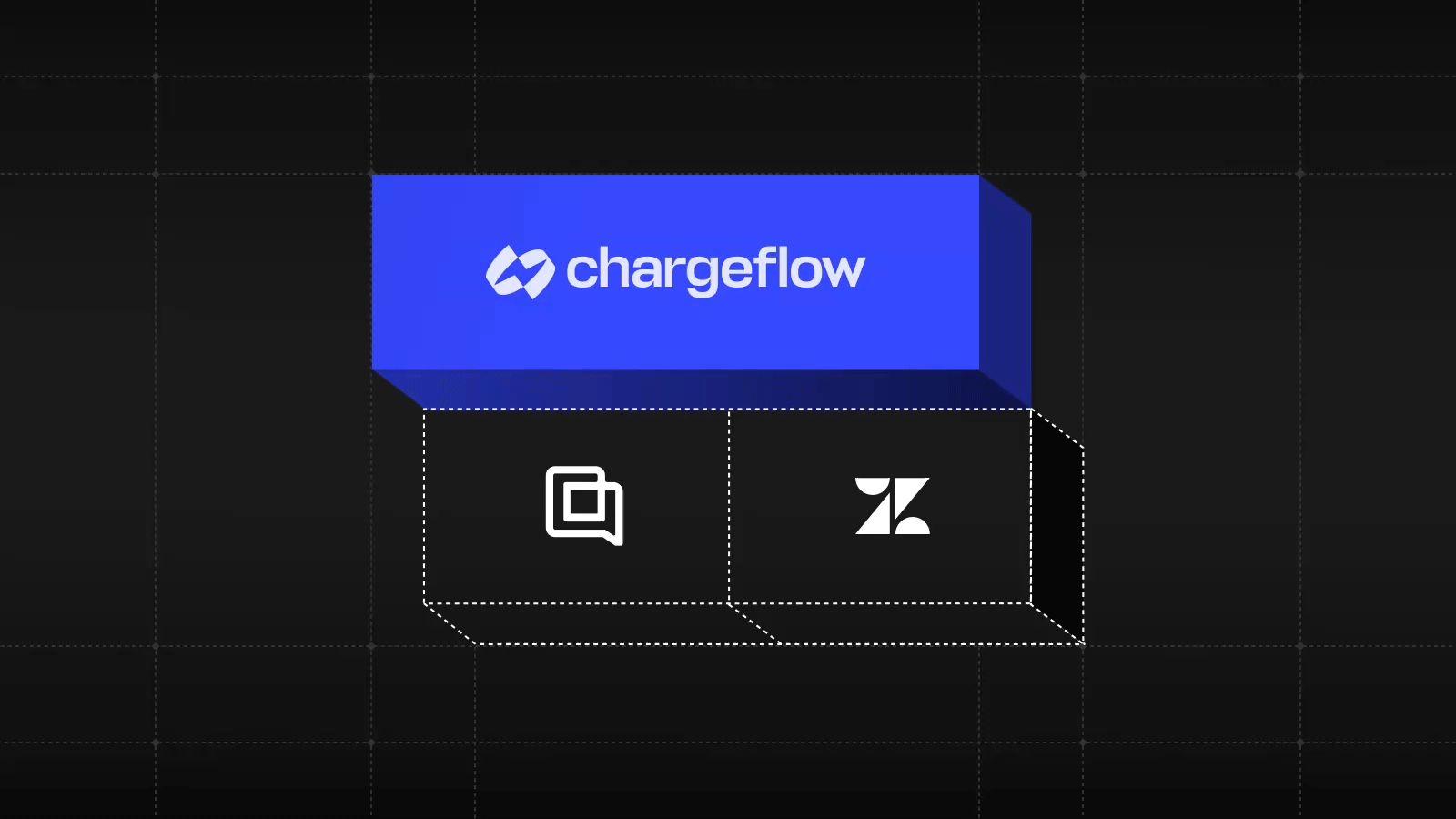Preventing Recurring Billing Chargebacks: A Must read Guide for Ecom Merchants

Chargebacks?
No longer your problem.
Recover 4x more chargebacks and prevent up to 90% of incoming ones, powered by AI and a global network of 15,000 merchants.
Discover essential tips for e-commerce merchants to prevent recurring billing chargebacks. Read our comprehensive guide now.
The prevalence of recurring billing chargebacks has become a growing concern for e-commerce merchants. As an online business owner, understanding and preventing chargebacks is crucial to safeguarding your revenue and maintaining a positive reputation.
In this comprehensive guide, we will delve into the world of recurring billing chargebacks, their impact on your business, and most importantly, effective strategies to prevent them. By implementing these proven techniques, you can mitigate financial losses, enhance customer trust, and optimize your e-commerce operations.
So, let's embark on this journey to master the art of preventing recurring billing chargebacks together.
Understanding Recurring Billing Chargebacks
Recurring billing chargebacks can pose significant challenges for e-commerce merchants. It is crucial to have a clear understanding of what they are and the reasons behind them to effectively prevent and manage such disputes.
Recurring billing chargebacks occur when customers dispute charges related to recurring subscriptions or services. These chargebacks differ from regular one-time purchase chargebacks, as they involve ongoing billing cycles.
Several common reasons contribute to recurring billing chargebacks. One reason is unauthorized transactions, where customers claim they did not authorize or recognize the charges on their credit card statements.
Dissatisfaction with the service provided is another common cause, where customers may feel that the quality or value did not meet their expectations. Technical issues and billing errors, such as incorrect billing amounts or failed transactions, can also result in chargebacks.
Impact of Recurring Billing Chargebacks
Recurring billing chargebacks can have significant consequences for e-commerce merchants, affecting both their financial stability and reputation among customers. Understanding the impact of these chargebacks is crucial for implementing effective prevention strategies.
A. Financial Losses for E-commerce Merchants
Recurring billing chargebacks can result in substantial financial losses for merchants. When chargebacks occur, the merchant not only loses the disputed funds but also incurs additional chargeback fees and penalties imposed by payment processors. These expenses can quickly add up and significantly impact the bottom line of a business.
Moreover, the time and resources spent on handling chargebacks divert valuable attention from core business operations. E-commerce merchants must invest significant effort into managing chargebacks, gathering evidence, and engaging in the dispute resolution process. This diverts resources away from serving customers and growing the business.
B. Damage to Reputation and Customer Trust
Recurring billing chargebacks can harm the reputation of e-commerce merchants, eroding customer trust and confidence in their products or services. When customers initiate chargebacks, it signals dissatisfaction or a breakdown in the merchant-customer relationship.
A high number of chargebacks can tarnish a merchant's reputation, making potential customers wary of engaging in business with them.
Word-of-mouth and online reviews play a crucial role in shaping consumer perceptions, and a negative reputation resulting from chargebacks can deter new customers from making purchases.
Implementing Effective Prevention Strategies
A. Robust Customer Authentication Measures
To prevent recurring billing chargebacks, it's crucial to implement robust customer authentication measures. By adding an extra layer of security, you can reduce the risk of unauthorized transactions and protect your business and customers.
- Two-Factor Authentication (2FA): Implementing 2FA adds an additional step to the login process, requiring customers to provide a second form of verification, such as a unique code sent to their mobile device. This ensures that only authorized users can access their accounts.
- Biometric Verification: Embracing biometric authentication, such as fingerprint or facial recognition, enhances security and minimizes the chances of fraudulent activities. Biometric data is unique to each individual, providing a reliable means of verifying customer identity.
B. Clear Communication and Transparency
Clear communication and transparency play a vital role in preventing chargebacks. By ensuring your customers have a clear understanding of your billing practices, you can minimize confusion and dissatisfaction.
- Providing Detailed Billing Information: Clearly communicate billing details, including the frequency, amount, and duration of recurring charges. Make this information easily accessible to customers on your website, in purchase confirmations, and in account dashboards.
- Obtaining Explicit Consent for Recurring Billing: Always obtain explicit consent from customers before initiating recurring billing. Clearly state the terms and conditions of the subscription, ensuring customers are fully aware of the recurring charges they will incur.
C. Optimal Customer Support and Dispute Resolution
Providing exceptional customer support and resolving disputes promptly can significantly reduce the likelihood of chargebacks. By addressing customer concerns in a timely and satisfactory manner, you can foster positive customer relationships.
- Promptly Addressing Customer Inquiries: Respond promptly to customer inquiries and concerns regarding billing or subscription issues. Provide multiple channels for customer support, such as live chat, email, and phone, to accommodate different preferences.
- Resolving Disputes Amicably: In the event of a customer dispute or complaint, work towards finding a mutually beneficial solution. Aim to resolve issues amicably, as a positive resolution can prevent chargebacks and maintain customer satisfaction.
Leveraging Technology to Prevent Chargebacks
To combat recurring billing chargebacks effectively, leveraging technology is key. By implementing advanced tools and strategies, e-commerce merchants can significantly reduce the risk of chargebacks.
Here are some essential ways technology can be utilized:
A. Fraud Detection and Prevention Tools
Deploying reliable fraud detection and prevention tools is crucial in identifying and thwarting fraudulent transactions. These tools utilize sophisticated algorithms and machine learning techniques to analyze customer behavior, detect suspicious patterns, and flag potentially fraudulent activities.
B. Machine Learning and AI in Chargeback Prevention
Machine learning and artificial intelligence (AI) play a vital role in chargeback prevention. These technologies can analyze vast amounts of data to identify patterns and trends associated with chargebacks.
By understanding the factors that contribute to chargebacks, you can take proactive measures to address the root causes and prevent them from occurring in the first place. Machine learning algorithms can also adapt and improve over time, continuously enhancing their effectiveness in preventing chargebacks.
C. Utilizing Chargeback Alerts and Notifications
Implementing chargeback alert systems can provide timely notifications about potential chargebacks. These systems notify you when a customer disputes a transaction, enabling you to respond promptly and initiate appropriate actions to resolve the issue.
By staying informed about chargeback requests, you can gather necessary evidence and initiate the dispute resolution process in a timely manner.
Best Practices for Recurring Billing Management
Managing recurring billing effectively is crucial for e-commerce merchants to maintain customer satisfaction, minimize chargebacks, and ensure smooth revenue flow. Here are some best practices to optimize your recurring billing management:
- Regularly Reviewing Billing Statements: Take the time to review billing statements regularly to identify any discrepancies or errors. This helps in catching billing mistakes early and rectifying them promptly, preventing potential chargebacks.
- Offering Flexible Subscription Options: Provide your customers with flexible subscription options to suit their changing needs. Allow them to upgrade, downgrade, or pause their subscriptions easily. Flexibility enhances customer satisfaction and reduces the likelihood of chargebacks due to dissatisfaction with the subscription terms.
- Monitoring Customer Behavior and Patterns: Keep an eye on your customers' behavior and purchase patterns. Watch for any sudden changes, such as an increase in chargeback requests or unusual subscription cancellations. Monitoring customer behavior helps you identify potential issues and take proactive measures to prevent chargebacks.
Responding to Chargebacks
Responding to chargebacks requires a proactive and strategic approach. By understanding the chargeback process and gathering the necessary evidence, you can increase your chances of successful representation and dispute resolution.
- Understanding the Chargeback Process: Familiarize yourself with the steps involved in the chargeback process. This includes receiving the chargeback notification, reviewing the reason provided by the customer, and assessing the associated documentation.
- Gathering Evidence for Rebuttal: To effectively challenge a chargeback, collect compelling evidence that supports your case. This may include order details, customer communication records, delivery confirmation, and any relevant policies or terms of service.
- Representment and Dispute Resolution: Submit a thorough and well-documented representment to the acquiring bank or payment processor. Clearly outline the reasons why you believe the chargeback is unwarranted, providing the evidence gathered. Engage in open communication with the bank and be prepared to present your case persuasively.
Remember, prompt action is crucial when responding to chargebacks. Act swiftly to gather evidence, communicate with the relevant parties, and submit your representment in a timely manner. By doing so, you increase your chances of successfully challenging chargebacks and recovering lost funds.
Analyzing and Learning from Chargebacks
Analyzing and learning from chargebacks is crucial for e-commerce merchants looking to improve their business practices and prevent future losses.
By understanding the patterns and trends associated with chargebacks, merchants can implement preventive measures and enhance their overall payment processes.
- Tracking and Analyzing Chargeback Data: To effectively learn from chargebacks, it is essential to track and analyze relevant data. Merchants should maintain a comprehensive record of chargeback instances, including details such as transaction dates, customer information, reason codes, and dispute outcomes.
By organizing and categorizing this data, merchants can identify recurring issues and areas for improvement.
- Identifying Patterns and Trends: Analyzing chargeback data allows merchants to identify patterns and trends that contribute to chargebacks. By examining common factors such as product types, transaction amounts, customer demographics, and specific time periods, merchants can gain insights into the underlying causes of chargebacks.
- Implementing Preventive Measures Based on Insights: The knowledge gained from analyzing chargeback data can be translated into preventive measures. Merchants can take proactive steps to mitigate chargebacks by implementing measures such as improved customer communication, enhanced fraud detection systems, and optimized billing processes.
Prevent Chargeback with Chargeflow Automated Solution
Chargebacks are a major problem for online merchants. They can cost merchants time, money, and customer satisfaction. Chargeflow is an automated chargeback management solution that can help merchants prevent chargebacks and win chargeback disputes.
Chargeflow works by automating the entire chargeback process, from dispute initiation to resolution. This includes:
- Generating dispute responses: Chargeflow generates dispute responses that are tailored to each merchant's specific situation. This ensures that merchants are providing the most accurate and compelling information to the cardholder's bank.
- Tracking dispute progress: Chargeflow tracks the progress of each dispute and provides merchants with updates as they become available. This allows merchants to stay informed about the status of their disputes and take action if necessary.
- Winning chargeback disputes: Chargeflow has a proven track record of helping merchants win chargeback disputes.
Chargeflow is a valuable tool for any merchant who wants to reduce the number of chargebacks they receive and increase their chances of winning chargeback disputes.
If you are looking for a way to save time and money, while also increasing your chances of winning chargeback disputes, then Chargeflow is a great option for you.
Here are some of the benefits of using Chargeflow:
- Increased chargeback win rate: Chargeflow has a proven track record of helping merchants win chargeback disputes.
- Reduced chargeback costs: Chargebacks can be expensive for merchants. The cost of a chargeback can range from $20 to $200, depending on the merchant's processor. Chargeflow can help merchants save money on chargebacks by reducing the number of chargebacks they receive and by increasing their chances of winning chargeback disputes.
- Improved customer satisfaction: Customers who have their chargebacks reversed are more likely to be satisfied with their merchant. Chargeflow can help merchants improve customer satisfaction by helping them win chargeback disputes.
If you are an eCommerce merchant, then you should consider using Chargeflow. Chargeflow is a powerful tool that can help you reduce the number of chargebacks you receive, increase your chances of winning chargeback disputes, and improve customer satisfaction.

Chargebacks?
No longer your problem.
Recover 4x more chargebacks and prevent up to 90% of incoming ones, powered by AI and a global network of 15,000 merchants.












































.png)
.gif)







